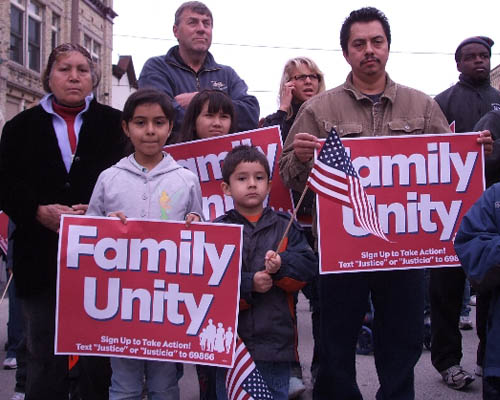I-130 Family Petitions and Consular Processing: A path to keeping the family together for foreign-nationals.
Family-based petitions are one of the ways in which foreign-nationals can receive green cards or permanent residency in the United States. The petition designated for Family Petitions is form I-130.
Only U.S. citizens and Lawful Permanent Residents can sponsor their family members through a qualifying family relationship. This has to be first degree relationships, such as spouses, children, parents and siblings. U.S. citizens, whether by birth or naturalization, can sponsor their spouses, children, parents and siblings. Lawful Permanent Residents can only sponsor their spouses and unmarried children.
I-130 IMMEDIATE RELATIVE PETITIONS
Immediate Relatives include: parent, spouses or children U.S. citizens. In this case, the children must be under 21 years old and unmarried. The U.S. citizen has to be over 21 in order to sponsor a parent for a visa. Individuals in this category may immediately apply for permanent resident status.
People who qualify for the Immediate Relative category and lawfully admitted to the United States with a visa or through the visa waiver program or ESTA are eligible to apply directly for a green card through the Adjustment of Status process. Those immediate relatives residing outside of the United States or those who entered the U.S. illegally usually immigrate to the United States through Consular Processing. It should be noted that the I-130 petition is only one part of the process to becoming a permanent resident. In order to complete the process, one must complete an I-485, Application for Adjustment of Status, if they are inside the United States. This can be filed concurrently for immediate relatives. Alternatively, they can choose to complete Consular Processing, if they are living abroad or came to the U.S. illegally.
I-130 PREFERENCE CATEGORIES
There is an annual limit on the immigrant visas that can be issued in each family-based visa preference category. The Visa Bulletin is used to monitor usage of immigrant visas and is issued by the Department of State each month. The Visa Bulletin lists each family-based category and country-specific categories that determine which priority dates can file for the Adjustment of Status or complete their Consular Process to get a green card.
The first family category, or Family 1st, is for children of U.S. citizens who are older than 21. The second family category is divided into two categories, F2A is for spouses and unmarried children under 21 of Lawful Permanent Residents and F2B is for children of Lawful Permanent Residents who are older than 21 but unmarried. There is no category for married children of Lawful Permanent Residents. If the child gets married before the parent naturalizes, their petition may be automatically revoked and lost. F3 is for married children of U.S. citizens and F4 is for siblings of U.S. citizens. Sometimes it is possible to jump from one category to another while keeping your place in line, also known as priority date.
CONSULAR PROCESSING
Consular Processing allows immigrants residing outside of the United States to obtain their permanent resident status.
Upon approval of the immigrant visa, individuals who complete the Consular Process are issued an immigrant visa in their passport, which allows them to immediately enter the United States. Once you enter the United States, the immigrant visa is endorsed into a permanent resident card. This means your status immediately changes and you will become a permanent resident immediately upon your admission to the United States.
- I-130 Family Petitions and Consular Processing: A path to keeping the family together for foreign-nationals. - November 3, 2014
- H-1B Visa: A path to hiring professional foreign employees. - October 23, 2014
- Deferred Action for Childhood Arrivals (DACA): What is it and who is eligible? - October 16, 2014
